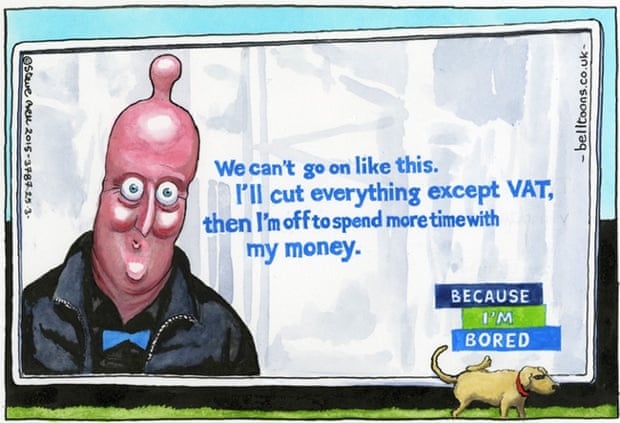 After hearing
the IFS and their ‘in depth analysis’ of what’s on offer on May 7th
I couldn’t help thinking that the institute were falling victim to their own proclamation
that, the parties through their respective campaigns, were barely communicating the ‘broad
outlines of choice.’
After hearing
the IFS and their ‘in depth analysis’ of what’s on offer on May 7th
I couldn’t help thinking that the institute were falling victim to their own proclamation
that, the parties through their respective campaigns, were barely communicating the ‘broad
outlines of choice.’
They had left out the full array of choice in
their analysis, providing a breakdown of spending on the largest four parties
only, inclusive of the SNP.
The IFS’s comments regarding the SNP plans were surprising however. Although there has been plenty of ‘squawking’ from the Sturgeon camp about how a vote for the SNP would mean a journey toward ending austerity, it seems that, ‘computer says no Sturgeon.’ The SNP just like all the main parties have signed up to a freezing, or an effectual cut to public spending of some sort.
The IFS’s comments regarding the SNP plans were surprising however. Although there has been plenty of ‘squawking’ from the Sturgeon camp about how a vote for the SNP would mean a journey toward ending austerity, it seems that, ‘computer says no Sturgeon.’ The SNP just like all the main parties have signed up to a freezing, or an effectual cut to public spending of some sort.
According to the IFS, irrespective of an
increase in borrowing and backing various Labour plans on tax (i.e. the mansion
tax) The SNP’s pledged economic policy would mean a freeze on some public
departments in order to achieve this 0.5% real terms increase in spending.
Without a certain amount of austerity in the SNP’s plans there would be none of
the proposed giveaways like the whopping 4.5 billion on welfare.
The IMF was I suppose handy in ingratiating
us, the awaiting politicos, with this sort of analysis. However, I have to
wonder if in leaving aside the other prospective parties, the opportunity of a
cheeky campaign triumph has been lost. Although it is nice to wax lyrical about
the Tories’ looming £30 Billion of cuts to unidentified departments. Or how the
£8 billion of NHS spending that the Lib Dems have pledged will be funded (by a
very flimsy £10 Billion tax avoidance figure.) The Greens and the Kippers could
really do with a win. And by leaving out these minority parties from the
conversation doesn’t this play into a wider narrative surrounding
disenfranchisement, in not having parties, which after all represent a fairly
large proportion of the electorate (about a third) not represented in this
analysis. David Dimbleby did refer to the IMF as the ‘gold standard,’ during
BBC’s Question Time this week. If the ‘Gold Standard’ isn’t even considering
your existence that may feel a little oppressive.
Now, I did mention this subject recently but
it is timely as only this morning, Mary Dejevsky of the Independent wrote a piece
in which she stated, “It could be that…when they [the Greens UKIP etc] wake up
on May 8th to discover that the seats won by their parties bear no
relation to the votes cast.” If Mary is right, and she is not alone in this
view, is it not such that the IMF, media organisations and all those with a
social responsibility to the electorate should be wholly unbiased in their
coverage. After all we are talking about a third of our country.